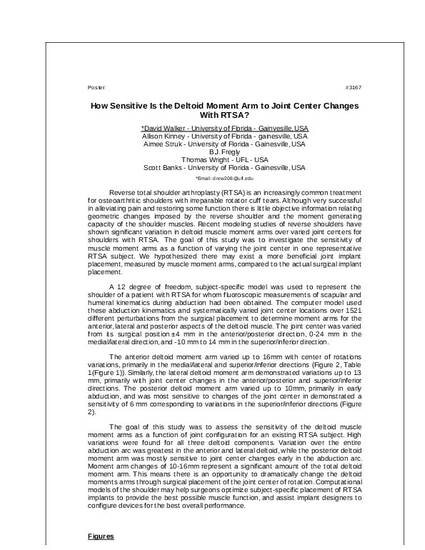
The goal of this study was to assess the sensitivity of the deltoid muscle moment arms as a function of joint configuration for an existing RTSA subject. High variations were found for all three deltoid components. Variation over the entire abduction arc was greatest in the anterior and lateral deltoid, while the posterior deltoid moment arm was mostly sensitive to joint center changes early in the abduction arc. Moment arm changes of 10-16mm represent a significant amount of the total deltoid moment arm. This means there is an opportunity to dramatically change the deltoid moments arms through surgical placement of the joint center of rotation. Computational models of the shoulder may help surgeons optimize subject-specific placement of RTSA implants to provide the best possible muscle function, and assist implant designers to configure devices for the best overall performance.
Available at: http://works.bepress.com/allison_kinney/34/
Document is made available for download with permission from the publisher. Permission documentation is on file.